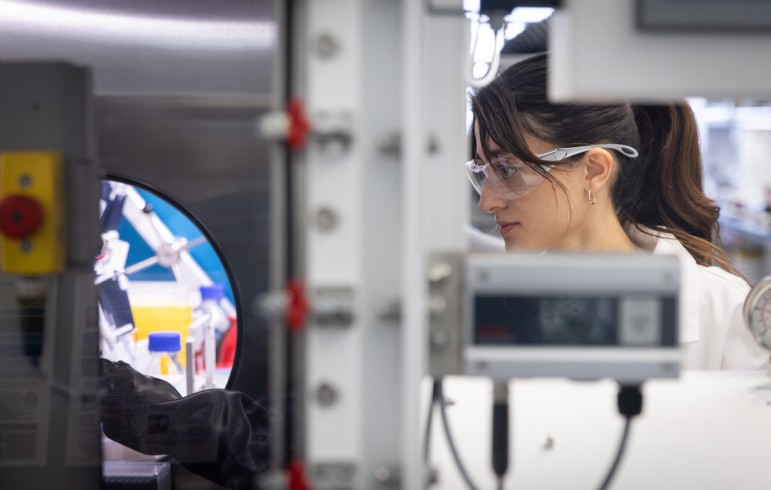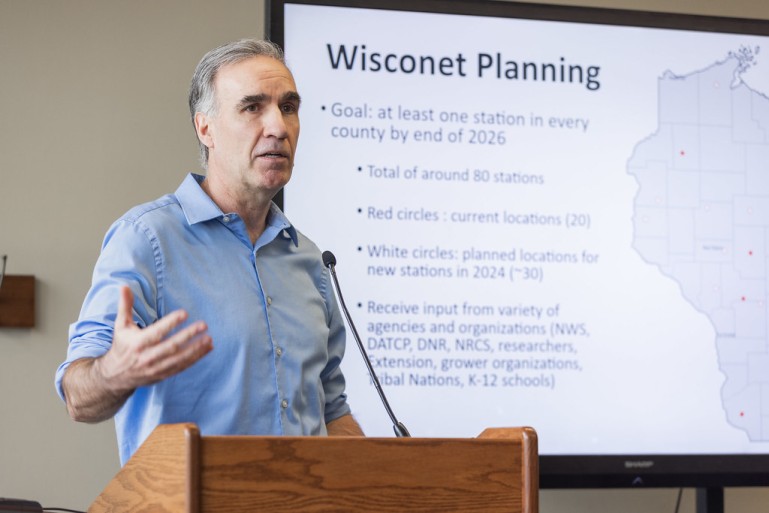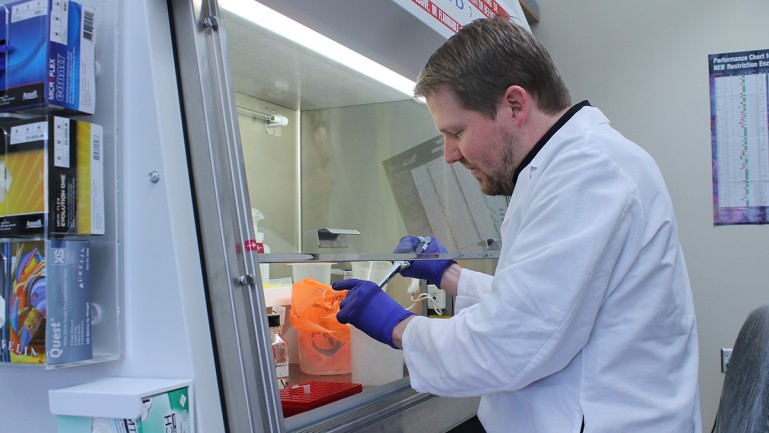Large-scale data centers — the massive warehouses full of mainframe computers that form the information backbones of companies such as Google, Facebook, Microsoft and Amazon — will soon account for as much as one-fifth of electric power use in the United States.
Sarah Johnston joined the faculty in the Department of Agricultural and Applied Economics as an assistant professor in August 2018.
Agronomy professor Shawn Kaeppler was recently honored with the National Association of Plant Breeders’ Lifetime Achievement Award, an award designed to recognize distinguished long-term service to the plant breeding discipline through research, teaching, outreach and leadership.
Through its Grainger Institute for Engineering, the University of Wisconsin-Madison College of Engineering and Argonne National Laboratory are partnering on ways to accelerate technology development that fuels growth in the $1.2 trillion manufacturing sector, while also aiming to facilitate a bro
The U.S. Department of Energy recently awarded about $4.7 million in funding to University of Wisconsin-Madison engineers for advanced nuclear energy research.
In recognition of his pioneering research on high-efficiency and high-power density new and classical electric motors with wide bandgap device power electronic drives, Bulent Sarlioglu, an associate professor of engineering professional development and electrical and computer engineering, receive
An internal combustion engine similar to the one in your car could play a key role in making electrical generation far more efficient.



